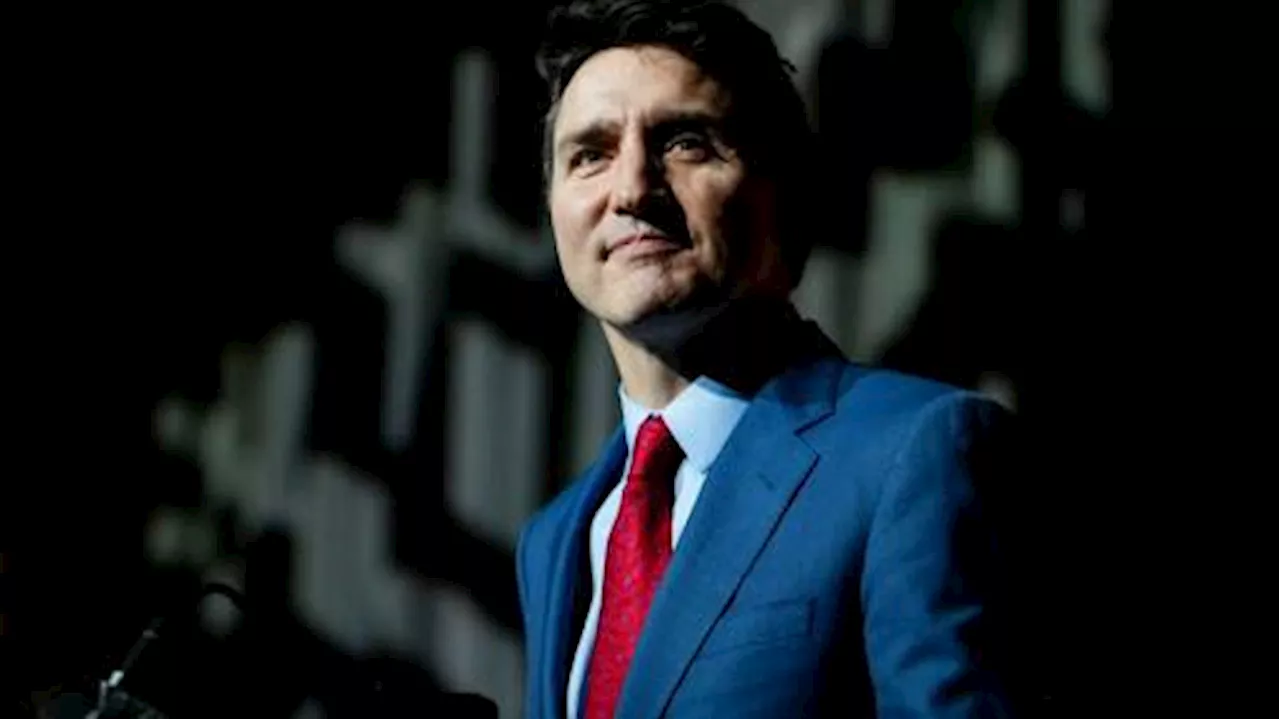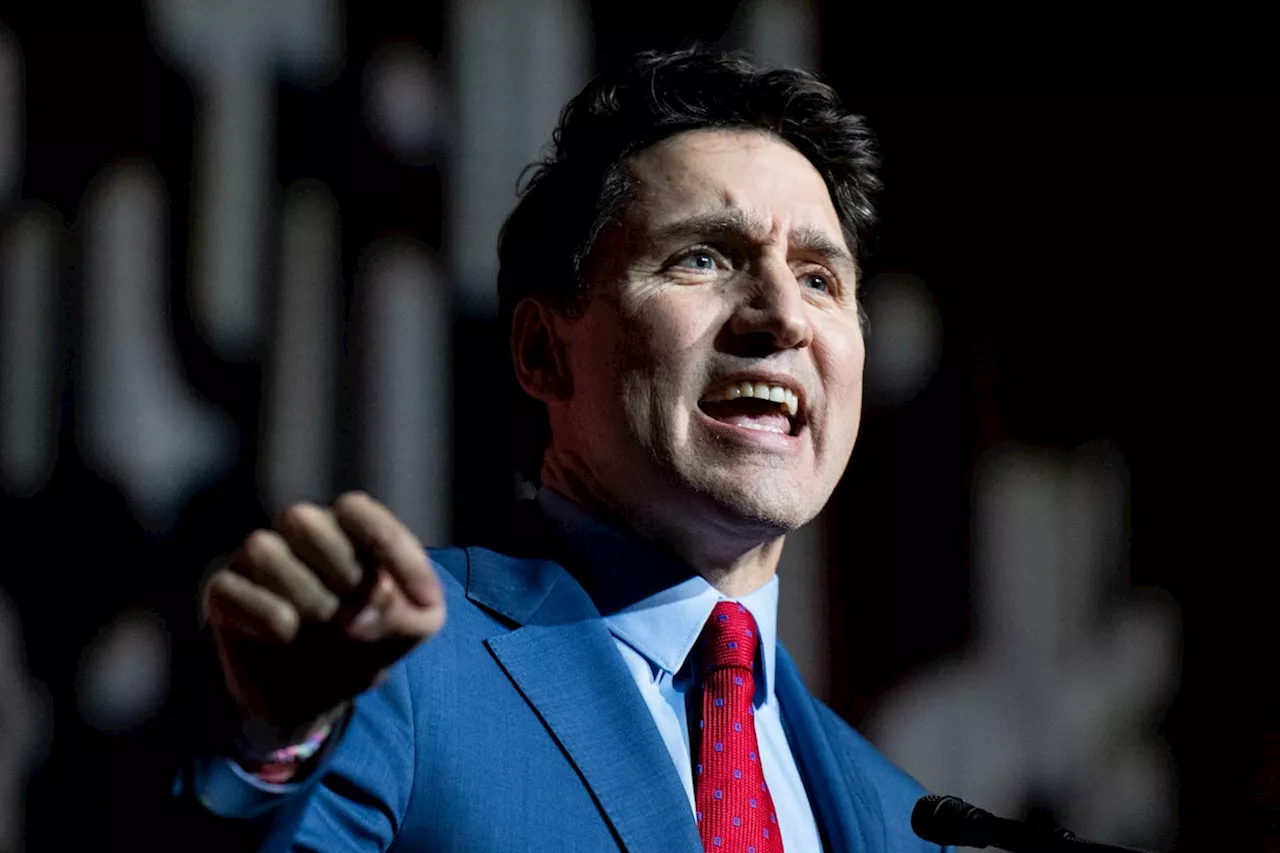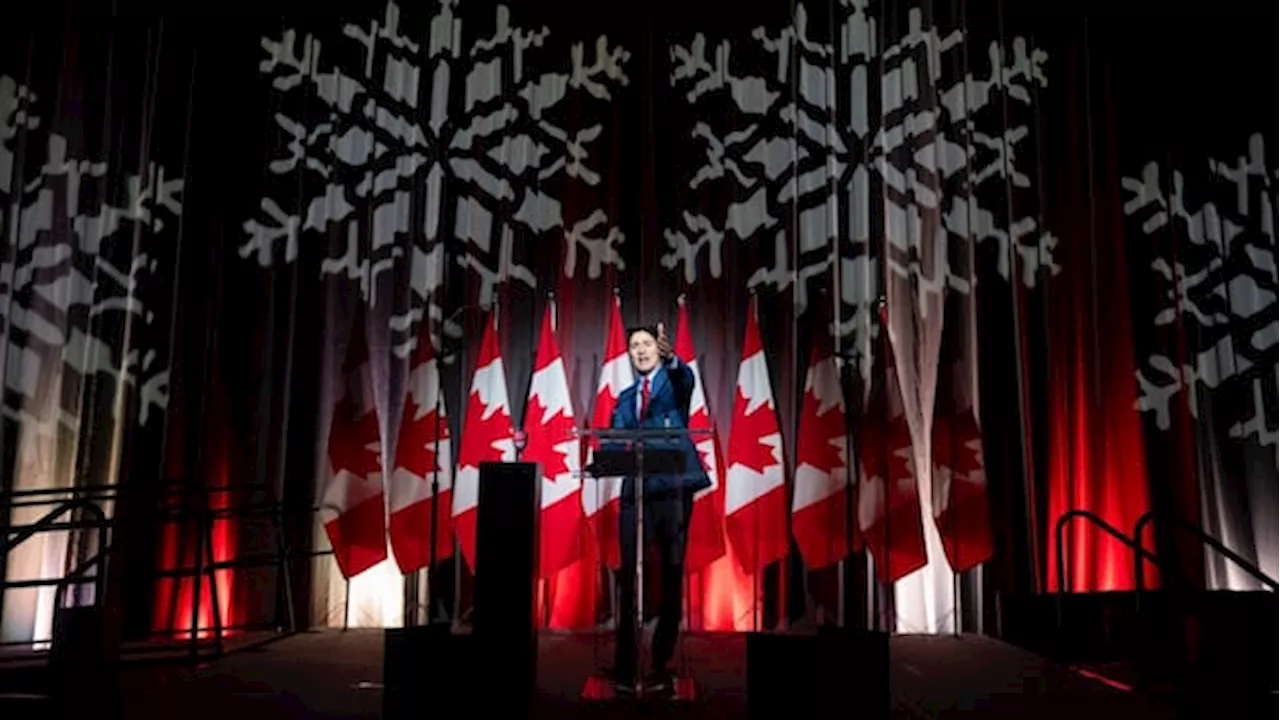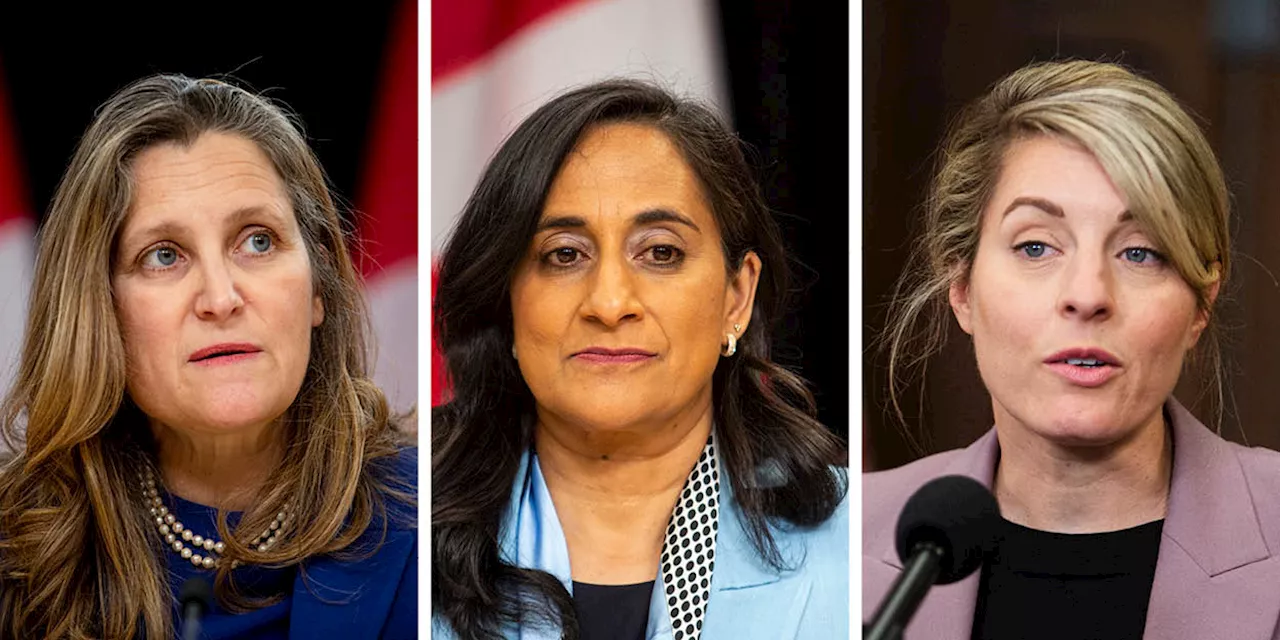Current polls put the Liberal Party in a precarious position. As they search for a new leader, women in the party are facing a difficult decision: should they risk their careers by leading a party teetering on the edge of defeat? This article explores the phenomenon known as 'the glass cliff', where women are often placed in leadership roles during times of crisis, setting them up for failure. Drawing on examples from both politics and the corporate world, the article examines the pressures faced by women in these positions and why top Liberal women are hesitant to step up.
As the Liberal Party leadership race heats up, a sobering question looms for women in top positions: is it worth stepping up to lead a party teetering on the edge of defeat? Mélanie Joly, Anita Anand, and Christy Clark have made up their minds: it’s not. Current polls put Liberals at a possible third or even fourth place in a general election.
Amid this crisis, women like Chrystia Freeland face a tough decision: should they run for the top job knowing that they are likely to become the party’s scapegoat if it loses? This well-researched phenomenon is known as the 'glass cliff'. It describes the situation in which women are more likely to be appointed to leadership positions in times of crisis, often setting them up for failure. They find themselves at the helm of a sinking ship, unable to reverse the likely demise but expected to bear the blame for its inevitable fall. \We’ve been here before. The glass cliff is a consistent pattern in both the corporate world and politics. This tendency to reach out to those who had been previously ignored exposes a darker truth: often these women are seen as expendable. A striking parallel can be drawn between the Liberal Party’s current crisis and the recent trajectory of Kamala Harris in the United States. It was only after it became untenable for President Joe Biden to continue that his vice-president was seriously considered as the next Democratic candidate for president. As Donald Trump's popularity surged and Biden’s plummeted, it became evident the Democrats were going to lose. And that’s when Harris became the top pick. Her candidacy was never truly given a chance. Former prime minister Kim Campbell is one example of the glass cliff in politics, another classic example comes from the United Kingdom. In the aftermath of the Brexit referendum, Theresa May was appointed leader of the Conservative Party. The country was deeply divided, leaving her leadership vulnerable to relentless criticism. In 2019, she resigned, without delivering on the promised Brexit negotiations. In a time of chaos, it was almost impossible for anyone to lead successfully. Predictably, it was May who was blamed for the party’s failure. Closer to home, in 1993, we hailed the election of Kim Campbell as Progressive Conservative leader as a triumph of progress. As we patted ourselves on the back for having our first female prime minister, we placed an impossible burden on hers: to accept a last-minute appointment to lead the then-deeply unpopular PC Party at a time of crisis. Then—under a tightened microscope—become its saviour. Campbell’s brief time in office has been described as a “caretaker” period—which feels particularly weighted and ironic, given the broader picture. \Why women leaders are reluctant Women entering the Liberal leadership race find themselves in an eerily similar position to Harris, May, and Campbell: set up for failure, expected to make the best of an untenable situation, facing the real possibility of being blamed for a loss largely out of their control. Freeland, Joly, and Anand have all been touted as a possible successors to Justin Trudeau for years. But do they want to gamble their careers on a potentially unwinnable race? When Joly announced that she would not run for the leadership, her reasoning was straightforward and focused on her current role. Make no mistake: Joly feels ready to lead the party. But is the party ready for her? Perhaps it’s simply not worth it for her to take her shot at a time that’s unlikely to bear fruit. Foreign Affairs Minister Mélanie Joly said she would not be running in the Liberal leadership race so she could focus on her current role. While anyone considering the top Liberal position will be tasked with the same predicament, it is women who have more to lose than men. Research shows that male leaders are given more time and grace to create change than women. In the private sector, male CEOs have a tenure that is 60 per cent longer than women, and women CEOs are more likely to be dismissed from their roles. Whoever succeeds Trudeau will have a tough road ahead. After a likely Liberal defeat the next election, the new leader will have to keep party trust until if they want a shot at becoming the prime minister. Research shows that a man will have a greater chance of keeping that trust than a woman will. The glass cliff is a dangerous trap, one that forces women—in both the corporate world and politics—into positions where success is all but impossible. For top Liberal women, the decision to step into the leadership race is likely not a question of readiness, but a calculation about whether it is worth the risk to their future opportunities
WOMEN IN POLITICS LEADERSHIP GLASS CLIFF LIBERAL PARTY CANADA
Canada Latest News, Canada Headlines
Similar News:You can also read news stories similar to this one that we have collected from other news sources.
 Quebec Liberals Join Call for Trudeau to ResignFollowing Ontario and Atlantic Liberal caucuses, Quebec Liberal MPs are now calling on Prime Minister Justin Trudeau to resign. This widespread demand within the Liberal party comes after discussions held during the winter break, indicating a majority of Liberal MPs in the House of Commons support Trudeau's departure.
Quebec Liberals Join Call for Trudeau to ResignFollowing Ontario and Atlantic Liberal caucuses, Quebec Liberal MPs are now calling on Prime Minister Justin Trudeau to resign. This widespread demand within the Liberal party comes after discussions held during the winter break, indicating a majority of Liberal MPs in the House of Commons support Trudeau's departure.
Read more »
 The million-dollar cliff: What happens if a home is $1 million or more?You're going to need a hefty chunk of change at the ready.
The million-dollar cliff: What happens if a home is $1 million or more?You're going to need a hefty chunk of change at the ready.
Read more »
 The million-dollar cliff: What happens if a home is $1 million or more?You're going to need a hefty chunk of change at the ready.
The million-dollar cliff: What happens if a home is $1 million or more?You're going to need a hefty chunk of change at the ready.
Read more »
 Ottawa Liberal Christmas Party: A Night of Festive ApathyThe Liberal Party of Canada held its annual Christmas party amidst a political storm, leaving attendees in a state of detached observation rather than passionate reaction.
Ottawa Liberal Christmas Party: A Night of Festive ApathyThe Liberal Party of Canada held its annual Christmas party amidst a political storm, leaving attendees in a state of detached observation rather than passionate reaction.
Read more »
 Freeland Makes First Public Appearance After Resignation at Liberal Caucus PartyChrystia Freeland, who recently resigned as Finance Minister and Deputy Prime Minister, made her first public appearance since leaving cabinet at the Liberal caucus holiday party. Despite the event being primarily focused on Prime Minister Justin Trudeau's speech, Freeland's arrival with a large entourage drew significant attention.
Freeland Makes First Public Appearance After Resignation at Liberal Caucus PartyChrystia Freeland, who recently resigned as Finance Minister and Deputy Prime Minister, made her first public appearance since leaving cabinet at the Liberal caucus holiday party. Despite the event being primarily focused on Prime Minister Justin Trudeau's speech, Freeland's arrival with a large entourage drew significant attention.
Read more »
 OPTA Group Wins Ontario Concrete Award for Recycled Glass InnovationOPTA Group's innovative use of recycled glass in high-performance concrete has earned them a prestigious Ontario Concrete Award. The company is building a $20 million facility in Hamilton to process waste glass, creating a new type of concrete with exceptional properties.
OPTA Group Wins Ontario Concrete Award for Recycled Glass InnovationOPTA Group's innovative use of recycled glass in high-performance concrete has earned them a prestigious Ontario Concrete Award. The company is building a $20 million facility in Hamilton to process waste glass, creating a new type of concrete with exceptional properties.
Read more »
